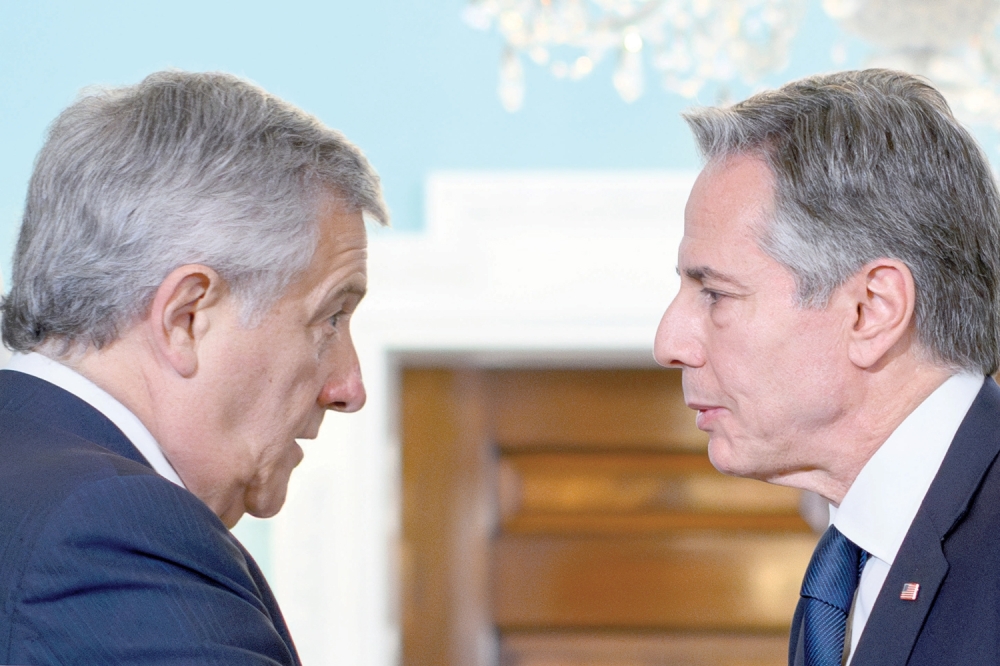

Last month, when US President Joe Biden predicted that a “thaw” in the Sino-US relationship would begin “very shortly,” many analysts dismissed it as just a ‘slip of tongue’ rather than a serious rhetoric.
However, the confirmation by the Chinese foreign ministry about US Secretary of State Antony Blinken’s visit to China this weekend has sparked a renewed sense of optimism, indicating the potential for a resumption of positivity between the two sides. Despite the prevailing atmosphere of extremism in American politics, envisioning a swift resurgence of rationality and normalcy in Washington's approach towards China has become increasingly challenging.
Yet, Blinken’s visit offers a glimmer of hope that something positive is brewing. Such a change in perspective would certainly pave the way for a renewed phase of collaboration between the two global powers. Blinken’s visit signifies the emergence of pragmatism among American policymakers.
Regrettably, the grand tapestry of US diplomacy has been marred by incessant interference and intervention from the extreme China hawks in Washington, obscuring the prospects of a mutually beneficial relationship. In an unfortunate turn of events in February, the United States demonstrated its penchant for overreaction and unilateral actions. In response to the "unmanned civilian balloon incident," the US side decided to postpone Secretary Blinken's visit to China, thereby squandering a valuable opportunity for meaningful engagement and dialogue between the two nations. This ill-considered decision not only aggravated the already abysmally low level of mutual trust but also exacerbated the deepening rift between China and the United States.
The postponement of Blinken's visit was a missed chance to bridge the gap and foster understanding between the two nations. Instead, it served as yet another example of America's propensity for short-sighted and counterproductive actions. Subsequently, both the G7 Summit in Hiroshima, Japan, and the Shangri-La Dialogue in Singapore were used by Washington as platforms to showcase its hostility towards China.
In Hiroshima, the United States attempted to rally support for a collective response to what it labeled as China's "economic coercion," portraying it as a global challenge. Similarly, at the Shangri-La Dialogue, China's legitimate advocacy for safeguarding its sovereignty was unfairly depicted as "threat" to regional peace and stability.
Against this backdrop, the visit of Blinken to China must be taken very seriously because it presents a unique opportunity for constructive engagement.
Admittedly, the United States holds the key to shaping a positive atmosphere that fosters sincerity and goodwill. Only through such proactive measures can this visit transcend mere spectacle and evolve into a substantive endeavor, actively propelling the healthy and stable growth of China-US relations.
The focus must remain on substance rather than theatricality, if this visit is to yield meaningful outcomes. Amid the stagnant state of China-US relations, a breakthrough lies within strengthened communication and the resolution of numerous pressing issues. It is crucial, however, to acknowledge that the agenda for discussions cannot be unilaterally determined by the United States. The Chinese side has a long list of grievances.
The seriousness and accountability with which the US addresses these infractions will determine its commitment to constructive engagement and provide the Chinese side with the explanations it rightfully seeks.
On the question of Taiwan, China's resolute commitment to upholding national unity and territorial integrity is unequivocal, underscored by its unwavering stance and clearly defined red lines. So, it is crucial for both nations to prioritise rebuilding trust and finding common ground in order to navigate the complex challenges that lie ahead.
Only through sincere and meaningful cooperation can we hope to achieve a more harmonious and stable global order. Constructive engagement, rather than antagonism, holds the key to a future where both nations can harness their collective strengths for the betterment of the world.
The time has come for the United States to transcend the suffocating grip of ideological entrapment and forge a new path—one that fosters understanding, cooperation, and shared prosperity with China.
Oman Observer is now on the WhatsApp channel. Click here



